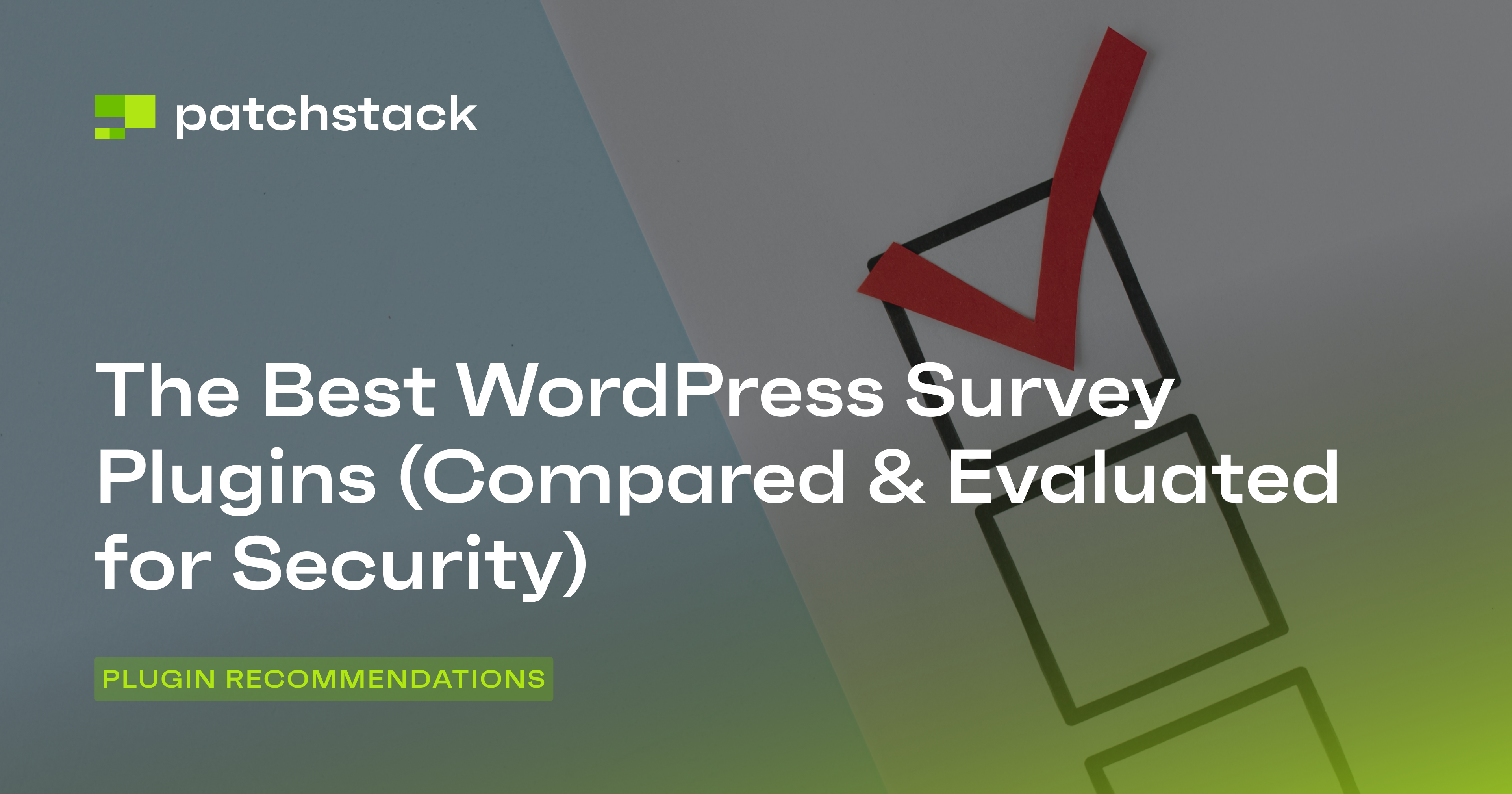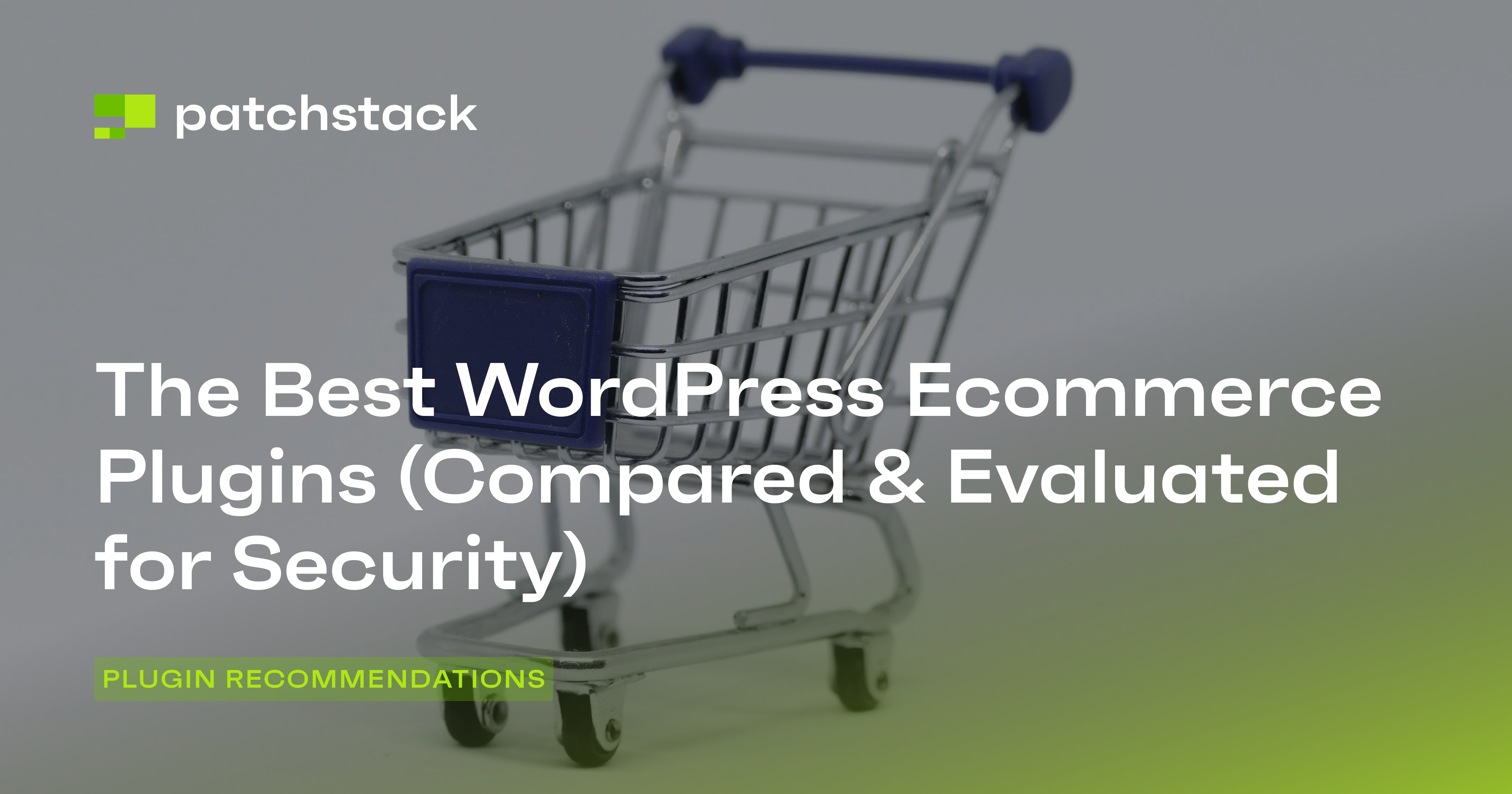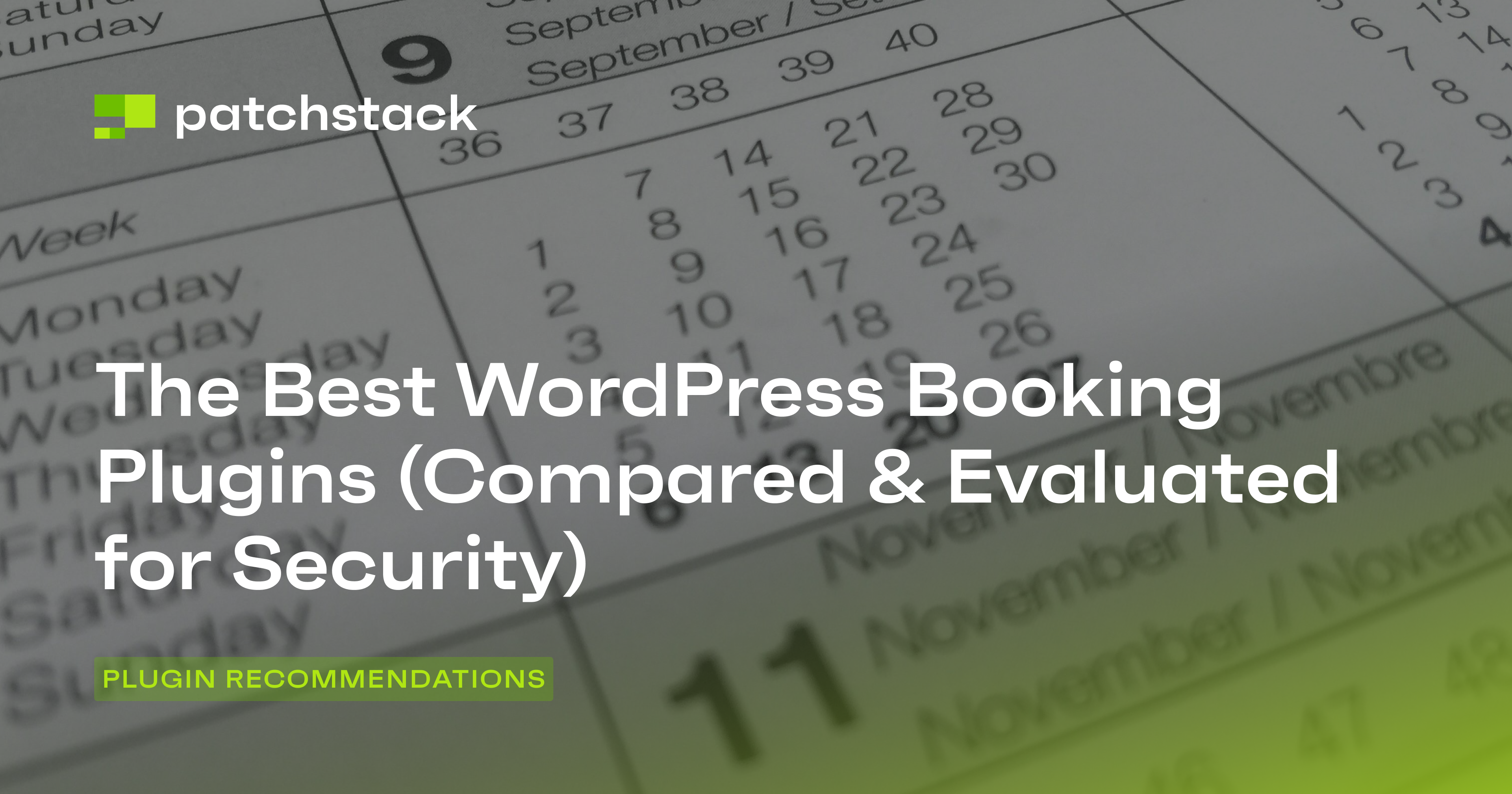Is your WordPress site feeling sluggish? Slow loading times are a conversion killer, driving visitors away before seeing your content.
But there is a simple solution: WordPress caching plugins.
These powerful tools can drastically improve your site's speed and performance – but choosing the right one from the huge array of options can feel overwhelming.
In this guide, we'll compare the best WordPress caching plugins of 2025, including their features, pricing, and ease of use, so you can find the perfect fit to supercharge your website.
A Quick Primer On How We Compare Plugins
Our team chooses all the plugins in this series based on the criteria listed below. Our process involves checking plugin reviews and ratings on the WordPress Plugin Repository and verifying whether the plugin is regularly updated. We also look for a well-maintained support forum and check for compatibility with the latest WordPress version. It is also important to assess the developer’s reputation and track record.
We also analyze each plugin from a security perspective. Please keep in mind that a high rating in security doesn’t mean the plugin has never had vulnerabilities or hasn’t been exploited in attacks. Instead, we focus on how quickly plugins respond to security issues, and how well they communicate security updates to their users.
We use four categories to analyze a plugin:
- Functionality
- Code quality
- Security practices
- Reputation
By the end of this article, you will have a clear idea of which WordPress caching plugin is the best fit for your site, and how to get started with it.
Top WordPress Caching Plugins
#1 - WP Rocket
WP Rocket applies blazing-fast performance enhancements to your WordPress website right out of the box. It eliminates the need for manual configuration and automatically applies page caching to ensure your WordPress site loads static HTML files instantly.
You can configure cache preloading so visitors always have the latest content without delays. Additionally, you can configure browser caching to store frequently accessed resources locally and reduce the server load.
WP Rocket excludes sensitive pages like carts from caching for eCommerce sites, ensuring seamless checkout processes. It is compatible with major themes, plugins, and managed hosts; furthermore, it integrates with CDNs to reduce latency for global audiences.
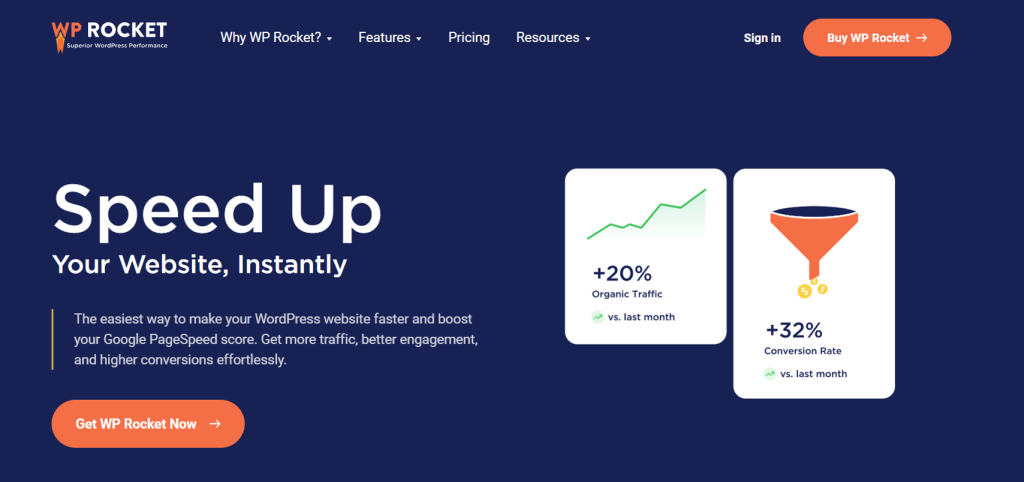
Pricing
The Single license costs $59 annually for one website, while the multi-license costs $299 annually and is ideal for solo developers or small businesses. At $119 per year, the Plus plan supports three sites. Enterprises or large-scale developers can use the Multi-license, which costs $299 annually and covers 50 websites.
Security
WP Rocket sets a high standard for security transparency. The developers publish a detailed changelog and directly link every changelog entry to GitHub commits. This practice lets users audit changes and verify fixes before installing the update. The team releases security patches separately from feature updates, the recommended best practice. For example, hotfixes in versions such as 3.18.1.4 resolved jQuery conflicts swiftly, preventing site crashes.
The plugin homepage clearly communicates that it is part of Patchstack’s managed vulnerability disclosure program. This program incentivizes ethical hackers to report issues before attackers can exploit them. Once the issues are reported, the developers fix them promptly. While no plugin is impervious, WP Rocket’s commitment to transparency and rapid response significantly reduces exploit risks.
Reputation
WP Rocket is trusted by over 343,000 customers who use it to optimize 4.7 million websites. It has received endorsements from industry leaders like Elegant Themes and WooCommerce, which validates its reliability. User testimonials highlight measurable gains, and some users report 100% PageSpeed scores and 45% conversion boosts.
#2 - LiteSpeed Cache for WordPress
LiteSpeed Cache for WordPress is an all-in-one acceleration plugin that integrates tightly with the LiteSpeed Web Server or the QUIC.cloud CDN. It provides complete access to server-level full-page caching, image optimization, lazy loading, and database optimization tools designed to slash page load times.
The plugin’s Edge Side Includes (ESI) support allows dynamic content, such as user sessions or WooCommerce carts, to remain uncached while accelerating static elements. Advanced users appreciate granular controls like cache crawlers and object caching, while novices benefit from presets like the “Advanced” configuration that automates optimization.
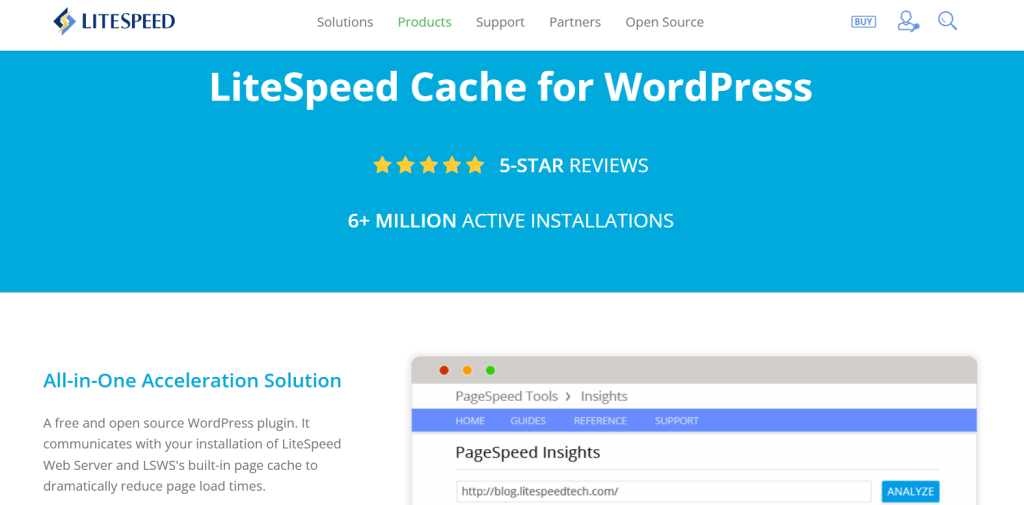
Pricing
You can deploy the LiteSpeed Cache plugin for free, but its full potential unlocks when paired with LiteSpeed Web Server (starting at $150/year) or QUIC. Cloud CDN services. Paid tiers include server setup, WordPress-specific optimizations ($100+ per site), and semi-annual maintenance plans ($1,200). While the free version delivers robust performance, enterprises or high-traffic sites may require these add-ons for deeper tuning.
Security
In the past, the LiteSpeed Cache plugin has patched 16 vulnerabilities, including high-severity privilege escalation flaws and cross-site scripting (XSS) risks. Still, all the vulnerabilities were fixed promptly. The plugin’s deep server-level integration amplifies damage potential if breached, as attackers could manipulate cached pages site-wide.
The plugin homepage clearly communicates that all security-related issues should be reported via Patchstack for vulnerability disclosure. This streamlines fixes and rewards security researchers.
Reputation
LiteSpeed Technologies has been operational since 2002 and has a strong reputation for server optimization. Over six million WordPress websites install the LS Cache plugin, which is no small feat.
Some users criticize it because of its occasional conflicts with non-LiteSpeed servers or overly aggressive caching breaking dynamic elements. However, the active forum community and detailed guides mitigate these hiccups. Enterprise clients highlight QUIC.cloud’s seamless CDN integration as a game-changer, though the lack of a standalone premium plugin tier frustrates some users seeking dedicated support.
#3 - W3 Total Cache
W3 Total Cache speeds up your WordPress site’s performance by integrating advanced caching mechanisms, CDN support, and minification tools in your WordPress dashboard. You can use features such as browser caching, deferred JavaScript loading, and WebP image conversion to reduce load times and improve Core Web Vitals.
The plugin’s Full Site Delivery feature serves your entire site through a CDN, ensuring global visitors experience fast page rendering. Dynamic content is optimized via Fragment Cache, and REST API Caching makes it possible to speed up headless WordPress setups.
Pro users can use advanced features such as automated log purging, gain access to granular caching statistics, and integrate with WPML to manage multilingual sites. These tools collectively improve SEO rankings, reduce server strain, and sustain traffic spikes without requiring hosting changes.
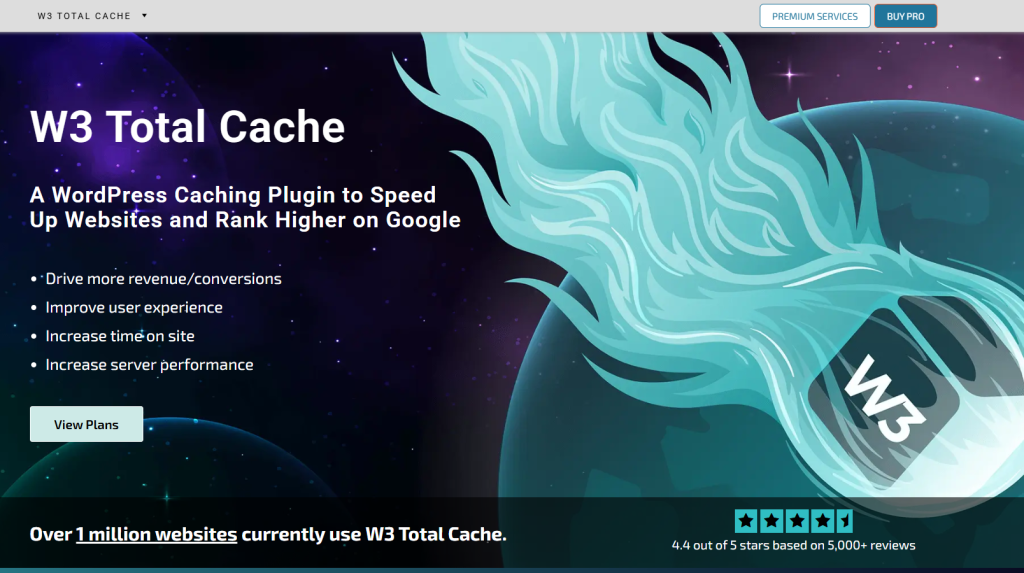
Pricing
Pro plans for W3 Total Cache start at $99/year for a single site, ideal for small businesses prioritizing speed. Scaling to five sites costs $350/year, and enterprises managing ten sites pay $500/year.
Security
At the time of writing, there are no active vulnerabilities in the W3 Total Cache plugin. Historically, the plugin has patched 17 vulnerabilities, including critical issues like Sensitive Credentials Stored in Plaintext and Reflected Cross-Site Scripting (XSS). While having a security vulnerability in the past does not make it a bad plugin, we don’t like that the developers still don’t have a vulnerability disclosure policy on their website homepage.
The absence of a bug bounty program or dedicated security contact discourages researchers from responsibly reporting flaws. We like that the changelogs provide enough detail about recent fixes, such as cache folder permissions, but security patches are often bundled with general updates, which isn’t recommended best practice.
Reputation
With over one million active installations, W3 Total Cache is one of the most trusted plugins in the WordPress community. Its decade-long presence in the WordPress ecosystem shows its reliability, and its partnership with Bunny CDN bolsters its credibility. User reviews often praise its feature set but criticize its steep learning curve and occasional conflicts with other caching tools.
#4 - WP Super Cache
WP Super Cache accelerates your WordPress site by generating static HTML files from dynamic content, reducing server load, and improving page load times. The plugin implements three caching methods: Expert mode (fastest, using server modules like Apache mod_rewrite), Simple mode (PHP-based, recommended for ease of setup), and WP-Cache (flexible, handling logged-in users and dynamic elements).
You can also configure preloading to ensure that cached files are generated proactively while garbage collection automatically removes stale files to conserve server space. It has a CDN integration that rewrites static file URLs for global delivery and provides a REST API endpoint, which allows admins to manage settings programmatically.
What makes it great is that you can extend its functionality using custom hooks such as add_cacheaction() or by creating plugins within the wp-super-cache-plugins directory. This flexibility makes the plugin suitable for both beginners and advanced users.
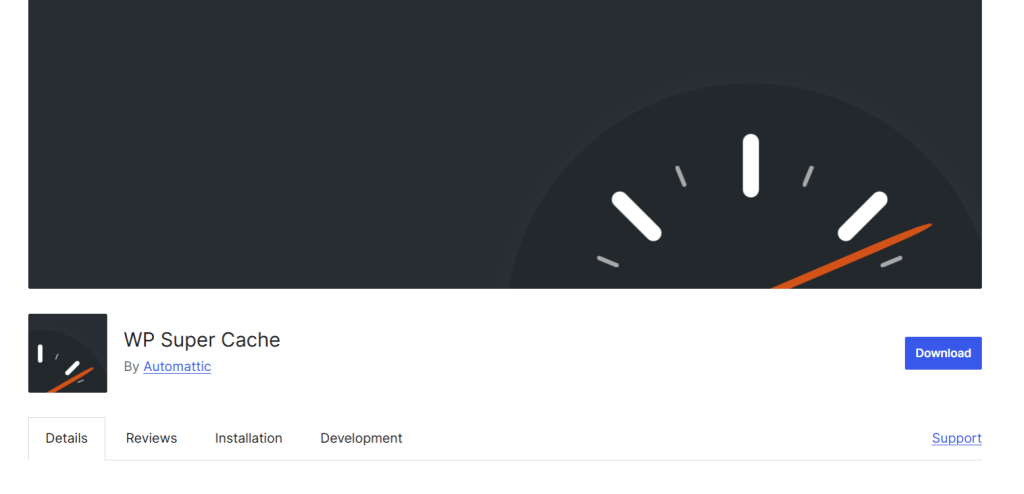
Pricing
WP Super Cache is free and available directly from the WordPress plugin repository. It is backed by Automattic, the parent company behind WordPress.com and Jetpack. For premium support, users can explore Jetpack’s paid plans, which include dedicated assistance and advanced features.
Security
WP Super Cache is managed by Automattic, which hosts a broader bug bounty program that covers WordPress core and affiliated projects. Though the plugin lacks a dedicated vulnerability program, historical data shows nine patched issues, including cache poisoning, XSS, and RCE vulnerabilities. After the vulnerabilities were reported, the developers promptly addressed all the security issues.
The plugin developers publish detailed changelogs, and each change is directly linked to a pull request, which makes it easy to track and audit later. While Automattic’s reputation lends credibility, users must manually enable security features such as cache exclusion for authenticated sessions and monitor CDN configurations to prevent unintended data exposure.
Reputation
WP Super Cache has over one million active installations and a 4.3-star rating on WordPress.org. Users often praise it for its speed gains and simplicity, and many experience measurable performance improvements after installation.
However, some critics highlight sporadic support responses and occasional conflicts with themes or plugins, particularly when preloading fails, or cache purging behaves unpredictably. Additionally, there are a few instances where outdated documentation complicates troubleshooting, and edge cases (e.g., multisite setups) require special attention. Despite these challenges, the plugin’s longevity and association with Automattic reassures most users.
#5 - Autoptimize
Autoptimize Pro accelerates your WordPress site by bundling image optimization, CDN delivery, automated critical CSS generation, and page caching into a single subscription. The Autoptimize plugin converts images to modern formats via ShortPixel’s infrastructure and serves them through a global CDN, reducing load times without requiring separate services.
You can also preload pages based on visitor behavior using Instant page integration or remove unused scripts sitewide. While these features streamline performance, improper configuration, like overly aggressive delays, may break functionality, so you should test changes thoroughly before implementing them on your production website.
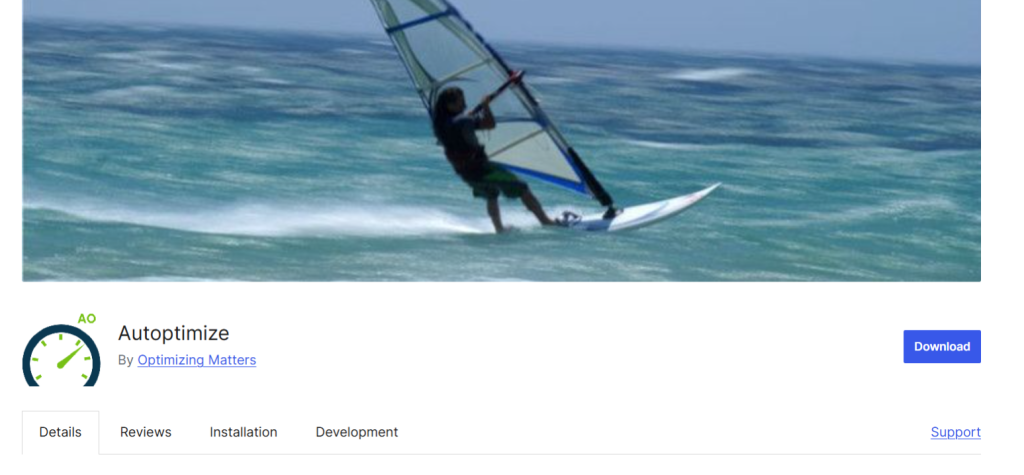
Pricing
Autoptimize Pro starts at $12.99/month or $89/year for one site and scales to $39.99/month or $379/year for five sites. This positions it as a premium solution compared to other alternatives discussed in this post, but the inclusion of image optimization and CDN offsets costs for users relying on third-party services such as Imagify or BunnyCDN.
Security
The developers at Autoptimize Pro have patched nine vulnerabilities in the past, including stored XSS flaws and data disclosure issues. This shows that the developers are actively maintaining the plugin and responding to reported threats in a timely manner. However, the absence of a bug bounty program or dedicated security contact page limits transparent vulnerability reporting.
Although the developers publish a changelog, minor fixes are often not included. Users can monitor GitHub commits for updates, but this is a hurdle for non-technical administrators.
While no active exploits exist today, the plugin’s complexity increases attack surfaces: delayed scripts or cached pages could inadvertently expose sensitive content if misconfigured. Relying on third-party services like ShortPixel introduces dependency risks, as compromised APIs might inject malicious assets. We recommend testing updates in staging environments and pairing Autoptimize Pro with a security plugin to monitor unintended behavior.
Reputation
With over one million active installations and a 4.7-star rating on wordpress.org, Autoptimize Pro certainly has strong community trust. Users praise its measurable performance gains, citing improved Core Web Vitals scores and reduced bounce rates.
Users also appreciate Autoptimize Pro’s support team and find their hands-on troubleshooting quite responsive. Autoptimize Pro’s parent company, Optimizing Matters, is a known name in the WordPress community, and it develops more WordPress plugins, namely WP YouTube Lyte and active forum participation.
#6 - Hummingbird
Hummingbird Pro is part of the WPMU DEV suite, which includes other performance optimization tools, including caching. It provides all the basic caching capabilities, including full-page caching, browser caching, RSS caching, and Gravatar caching. In addition, you can use it to optimize page speed through automated critical CSS generation and JavaScript execution delays, which reduce render-blocking resources.
It provides a turbocharged asset optimization functionality that minifies and combines CSS, JavaScript, and HTML files while integrating a 123-point CDN for global content delivery. The plugin supports multisite configurations and enhances hosting performance regardless of your provider, making it compatible with Elementor, WooCommerce, and other popular tools.
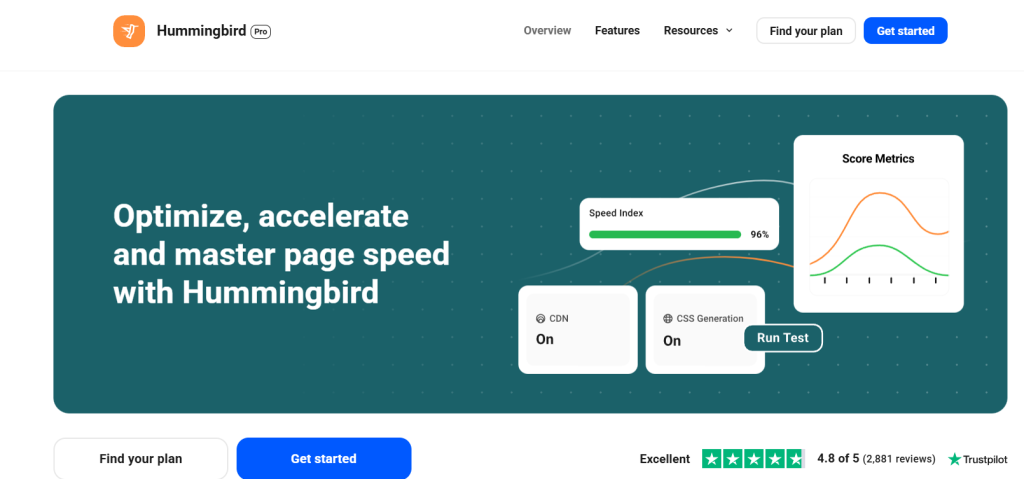
Pricing
Hummingbird Pro offers four tiers: Basic ($15/month), Standard ($25/month), Plus ($50/month), and Premium ($100/month), all billed annually. Each plan includes Pro features like CDN access, backup storage, and 24/7 support.
Security
Hummingbird Pro participates in the Patchstack Vulnerability Disclosure Program, which allows researchers to report issues directly. This is the recommended way to report vulnerabilities, as sending sensitive information about security incidents isn’t considered best practice.
Whenever a vulnerability is submitted to the developers, they promptly address the issues and release an update. For instance, in the past, the developers witnessed several vulnerabilities, including path traversal and stored XSS flaws, but all of these bugs were fixed promptly.
We appreciate that the developers update the plugin to fix vulnerabilities, but the changelogs often lack transparency. The changelogs use vague terms like “security fix” without detailing risks or mitigation steps. This ambiguity leaves users unaware of specific threats, complicating risk assessments.
Reputation
Hummingbird Pro has over 100,000 active installations and an average rating of 4.7/5, which makes it a user favorite. Users often appreciate its ease of use, performance gains, and responsive support team. However, as with other plugins, some critical reviews cite conflicts with specific themes or plugins and occasional performance drops.
WPMU DEV’s longstanding presence in the WordPress ecosystem adds credibility to the Hummingbird Pro plugin. WPMU DEV is deeply invested in the WordPress ecosystem, and it is highly unlikely that they will discontinue this plugin anytime soon. This is in stark contrast with some of the plugins that are developed and maintained by solo developers. This reliability makes it a great choice for business-critical applications.
#7 - Breeze
Breeze is a lightweight and easy-to-use caching plugin that accelerates your WordPress site by integrating performance optimizations that simplify caching and content delivery. You can activate the plugin to enable a file-level cache system, database cleanup, and minification of HTML, CSS, and JavaScript, features that reduce page load times without requiring technical expertise.
The plugin automatically detects whether your server uses Varnish Cache, applies pre-configured settings for efficient content delivery, or defaults to its internal caching mechanism if Varnish is absent.
It also allows you to gain granular control over caching exclusions and block specific URLs or scripts from being cached. If you are a WordPress administrator who manages multiple sites, you can use the import/export feature to replicate settings across installations in seconds, avoiding repetitive configuration.

Pricing
Breeze is entirely free, a strategic choice by Cloudways (owned by DigitalOcean) to support the broader WordPress ecosystem while promoting their hosting services.
Security
The developers at Breeze address security vulnerabilities swiftly and transparently. We like that the developers release detailed changelogs that explicitly reference fixes, such as adding nonce checks to prevent cross-site request forgery (CSRF) in version 2.0.8. The team separates security updates from feature releases, allowing you to apply critical patches immediately without waiting for broader compatibility testing.
By participating in a vulnerability disclosure program, the developers invite security researchers to report issues, which are validated and resolved through collaboration. This transparency builds trust, as fixes can be verified through published CVEs and Patchstack Alliance bulletins.
Reputation
Breeze is a WordPress caching plugin with over 400,000 active installations and is widely trusted by WordPress users. This trust is further strengthened by its association with Cloudways and DigitalOcean, companies known for their reliable infrastructure. By using Breeze, you're benefitting from a tool built by a team with extensive server-level expertise, ensuring that the optimizations align with modern hosting environments.
The plugin's ease of use, especially for non-developers looking for one-click performance gains, is frequently praised in support forums. Cloudways' direct involvement ensures consistent updates and dedicated support channels, including WordPress.org forums and their community platform. While some users might prefer plugins with more granular control over caching rules, Breeze's balance of simplicity and effectiveness makes it a go-to choice for small to mid-sized sites that prioritize speed and ease of use.
#8 - WP Fastest Cache
WP Fastest Cache is another popular WordPress caching plugin known for its speed and ease of use. It is a comprehensive caching solution that directly tackles WordPress performance bottlenecks. The plugin uses mod_rewrite for rapid page caching, automatically clears cache upon content updates, and supports granular control over cached pages via timeouts or shortcodes.
As you might expect, it provides access to standard optimization features, including HTML, CSS, and JavaScript minification, GZIP compression, and browser caching, which collectively reduce server response times. But that’s not all – premium users can use advanced tools such as mobile-specific caching, deferred JavaScript execution, WebP image conversion, and database cleanup, which address modern Core Web Vitals metrics.
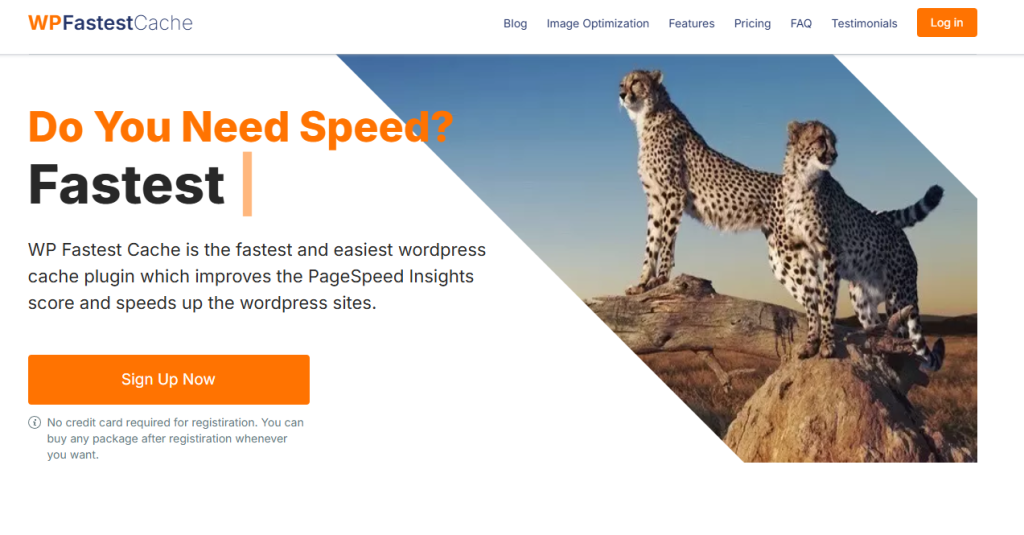
Pricing
WP Fastest Cache Premium adopts a lifetime licensing model across four tiers: Bronze ($49), Silver ($125), Gold ($175), and Platinum ($300), covering 1 to 10 sites. This one-time payment structure contrasts sharply with competitors’ recurring subscriptions, offering long-term cost savings. Each license includes unlimited image optimization credits and CDN integration support for providers such as Cloudflare and BunnyCDN.
Security
WP Fastest Cache’s developers have patched 16 vulnerabilities in the past, including a critical unauthenticated SQL injection flaw in 2023. The plugin’s vulnerability history includes high-severity issues like arbitrary file deletion and blind SSRF via CSRF. These vulnerabilities, though resolved, highlight past lapses in input validation and privilege checks.
While having a vulnerability in the past doesn't make it a bad plugin, we don’t like that the plugin developers don’t participate in a bug bounty program. Relying solely on a single email contact for security reports and all the support queries might seem efficient since there is a risk that critical issues may get buried under generic support queries in the inbox. This informal approach may delay response times during zero-day exploits.
Reputation
With over one million active installations and a 4.9-star rating, WP Fastest Cache is one of the best caching plugins. Users often appreciate it for its intuitive interface and measurable performance gains, particularly in GTmetrix and PageSpeed Insights scores. However, a deeper analysis reveals recurring complaints about compatibility conflicts with hosting-specific caching tools and occasional cache invalidation errors after WooCommerce updates.
While its longevity (first released in 2014) signals reliability, the developer’s low public visibility compared to rivals may give enterprise users pause. Its balance of features and affordability outweighs these caveats for most small-to-medium sites.
Final Thoughts
Choosing the right WordPress caching plugin can dramatically improve your website's performance and user experience. Whether you opt for a feature-rich premium solution, a versatile free option, or a balance of both, the benefits of caching are undeniable. We've explored the strengths of several top contenders, and hopefully, this guide has helped you narrow down the best fit for your specific needs and technical comfort level.
However, there's a crucial element that goes beyond simply having a caching plugin: ongoing security.
Even the best-maintained plugins can have vulnerabilities, and caching plugins are no exception due to their complex nature and interactions with your server. A newly discovered vulnerability in any plugin could expose your site to attacks.
That's why proactive security monitoring is essential, regardless of which caching plugin you select. This is where Patchstack comes in.
Patchstack provides real-time vulnerability monitoring specifically for WordPress plugins, themes, and core. Patchstack doesn't just tell you if you have a vulnerable plugin – it often provides details about the vulnerability itself and offers virtual patching to mitigate the risk while you wait for an official update from the plugin developer.
Sign up for Patchstack to get alerted to vulnerabilities in your caching plugin and other plugins before they become a threat.
